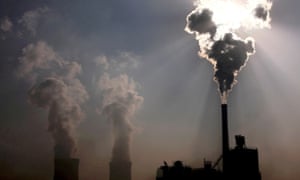The Science Weekly podcast is in Glasgow, where we are bringing listeners daily episodes from Cop26. Each morning you will hear from one of the Guardian’s award-winning environment team. Today, host Madeleine Finlay talks to the Guardian’s energy correspondent Jillian Ambrose about plans to end coal use. And as Cop26 week one draws to a close U.S. Special Presidential Envoy for Climate John Kerry gives his thoughts
More than 40 countries agreed to phase out their use of coal-fired power, the dirtiest fuel source, in a boost to UK hopes of a deal to “keep 1.5C alive” at the Cop26 summit on Thursday.
Major coal-using countries including Canada, Poland, South Korea, Ukraine, Indonesia and Vietnam will phase out their use of coal for electricity generation, with the bigger economies doing so in the 2030s and smaller economies doing so in the 2040s. However, some of the world’s biggest coal-dependent economies, including Australia, China, India and the US, were missing from the deal, and experts and campaigners told the Guardian that the phase-out deadlines countries signed up to were much too late.
Science Weekly host Madeleine Finlay talks to the Guardian’s energy correspondent Jillian Ambrose about what these plans to end coal really mean. Plus, Madeleine asks Michal Bieda, the deputy mayor of Bytom in Poland, why Poland is finally agreeing to reduce its use of coal, while Rachel Cleetus, the policy director with the Climate and Energy programme at the Union of Concerned Scientists, tells Madeleine about the impact coal has on our health.

The Guardian is editorially independent.
And we want to keep our journalism open and accessible to all.
But we increasingly need our readers to fund our work.

